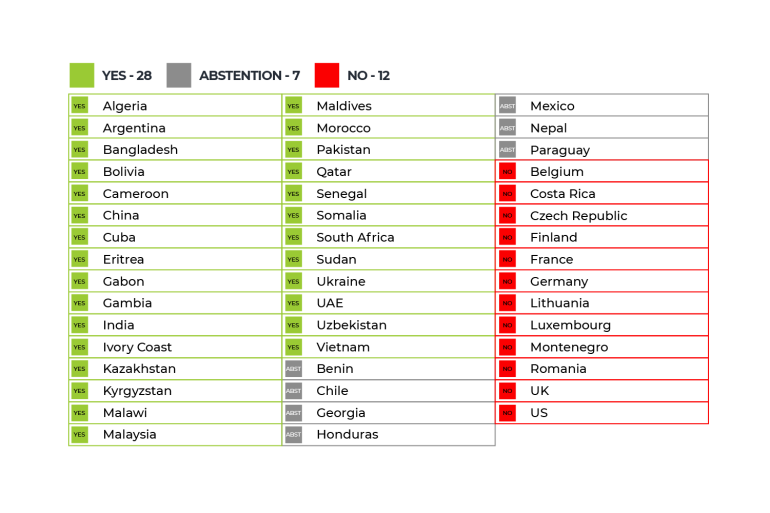
The United Nations Human Rights Council (UNHRC) has approved a resolution on religious hatred and bigotry in the wake of a Quran-burning stunt in Sweden that led to protests across the Muslim world.
The motion passed on Wednesday but was opposed by the United States and the European Union, which said it conflicts with their positions on human rights and freedom of expression.
Pakistan and other Organisation of Islamic Cooperation countries, concerned by the incident last month outside Stockholm’s main mosque, during which an Iraqi immigrant desecrated the Quran on the Eid al-Adha holiday, had secured an urgent debate at the UN’s top rights body on Tuesday.
The resolution, among other things, called on countries to take steps to “prevent and prosecute acts and advocacy of religious hatred that constitute an incitement to discrimination, hostility or violence”.
Pakistan’s Foreign Minister Bilawal Bhutto Zardari told the Geneva-based council via video on Tuesday: “We must see this clearly for what it is: incitement to religious hatred, discrimination, and attempts to provoke violence.”
He said such acts occurred under “government sanction and with the sense of impunity”.
Bhutto Zardari’s remarks were echoed by ministers from Iran, Saudi Arabia, and Indonesia.
“Stop abusing freedom of expression,” said Indonesia’s Foreign Minister Retno Marsudi. “Silence means complicity.”
UN human rights chief Volker Turk told the UNHRC that inflammatory acts against Muslims, as well as other religions or minorities, are “offensive, irresponsible, and wrong”.
Sweden has condemned the Quran burning but maintains the country has a constitutionally-protected right to freedom of assembly, expression, and demonstration.
On Tuesday, France’s ambassador Jerome Bonnafont noted that human rights “protect people – not religions, doctrines, beliefs or their symbols … It is neither for the United Nations nor for states to define what is sacred”.




















